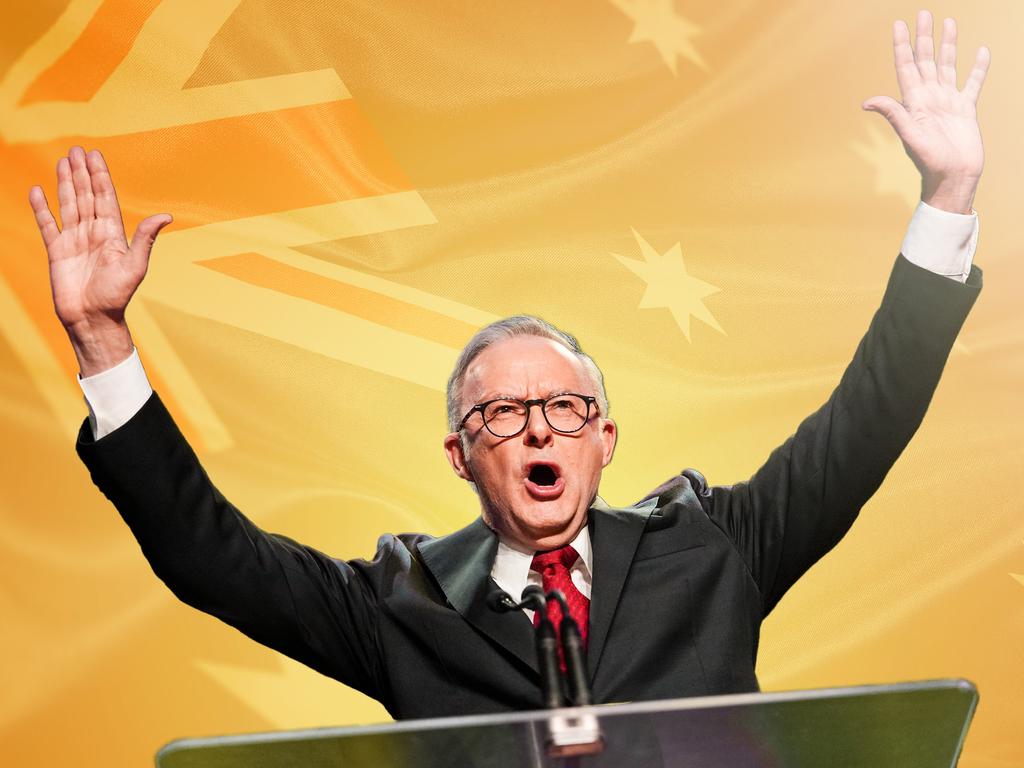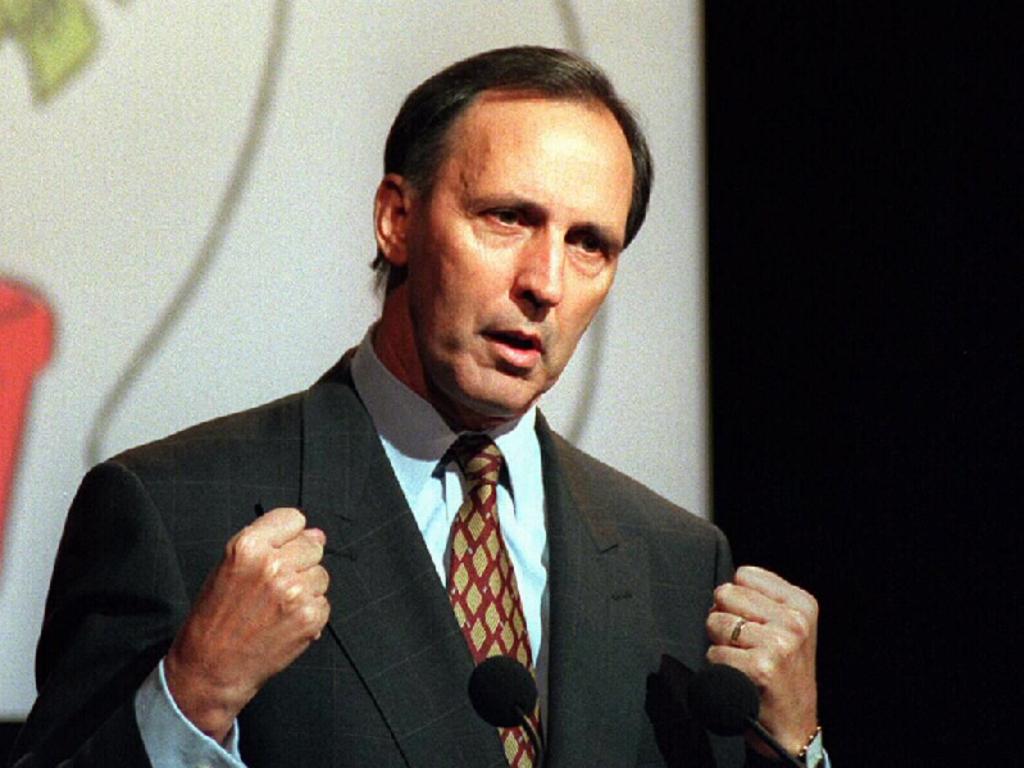
Whether the Coalition negotiates with Labor to improve and pass the bill containing the 30 per cent tax on super earnings for accounts more than $3m is a political call. My view is the Coalition would be unwise to do so because it would dilute its warranted opposition to the proposal as well as connote support for higher taxes.
At this stage, it looks as if the Coalition will take this approach. Everyone knows what the main weaknesses of the bill are – taxing unrealised capital gains and failure to index the threshold – so it’s not clear what contribution the Coalition would be making. In the event some concessions are made by Jim Chalmers, the Coalition could be trapped into supporting the bill or criticised for refusing to do so.
There is a significant matter of principle at stake. People have invested in superannuation, a long-term asset, according to the rules of the day. No one is suggesting they acted illegally or inappropriately. Then along comes a Treasurer, desperate for more revenue, who has no qualms about changing the rules even if the change is close to unimplementable.
(The same accusation can be made of the changes made by the Coalition government in 2016, when Malcolm Turnbull was prime minister. There are doubtless quite a few Coalition supporters who have never forgiven their side of politics.)

Chalmers tries to justify the change on the basis that it will affect very few people – about 80,000 to 100,000 – although the failure to index the $3m cut-off will mean more and more superannuation members will be dragged into the net over time. But here’s the thing: principles are principles; they are not dependent on how many or how few are affected by a change.
It beggars belief that wet-behind-the-ears Treasury officials should be expressing the view that farms should not be in superannuation funds when the debate about exemptions was being conducted. It was perfectly legal for farms to be an asset within a superannuation fund and trustees no doubt had good reasons to include them.
The fact the decision was made that there should be no exempted assets from the new tax impost is essentially a political one, recommended by public servants. It is these lumpy, illiquid assets – business premises are another example – that make taxing unrealised capital gains so problematic, not just unprincipled.
Chalmers seems confused about the implications of taxing paper profits when he justifies the proposed treatment of those people on (large) defined benefit pensions, including Anthony Albanese and several other members of the current parliament. The scope for those who are still working to defer the tax payable is a generous gift. After all, those with accumulation arrangements won’t be able to defer the tax.
He tries to explain this by pointing to the absence of an actual super account for those on defined benefits from which to draw funds to pay the tax. But the same logic applies to people who will be taxed on paper profits; there is no cash to pay the tax because the capital gain is unrealised.
Some large superannuation funds are made up almost entirely of illiquid assets and there will be no way for the affected members to pay the tax bill. But there is no scope in the bill for their tax bills to be deferred even with a (concessional) rate of interest being charged, which will be the case for defined benefit superannuants. A last resort could involve affected farmers, for instance, taking out a bank loan to pay the tax. Is this really what the government has in mind as many farmers struggle with drought or floods?
It is also passing strange that people can have extremely expensive houses – $10m, even $20m, well above the $3m – and there is no tax on the unrealised capital gains there. And when the owners of these massively expensive homes come to sell them, there is no capital gains tax whatsoever. Clearly, in Chalmers’s view, what’s good for the goose is not good for the gander.
(It is surprising that those same immature Treasury officials aren’t proposing to their boss that a tax could be levied on the so-called imputed rent of owner-occupied dwellings. Just think about it: a rate could be struck, say 5 per cent, and owners of those expensive homes could be charged a tax on the value above a certain threshold – perhaps $3m? Think of the revenue. Just joking, of course.)
It has been an unshakeable belief within Treasury that the supposed superannuation tax concessions that apply to contributions and earnings are unjustified and skew heavily to those with the highest income.
But there is considerable debate about the methodology for calculating these tax concessions. Treasury’s estimates are based on simple cross-sectional comparisons that fail to account for the fact that the funds are locked away until the member reaches preservation age. A more appropriate methodology recognises that taxes accumulate year after year – it’s like compounding, but in a downward direction. It turns out that superannuation is not in fact particularly tax-favoured when these more accurate calculations are made.
As for the projections of revenue from Chalmers’s new tax, he should realise the Treasury has an appalling track record when getting even close to the mark. This is partly because the methodology essentially involves drawing straight lines while failing to take account of any second-round, behavioural changes. It is estimated that $2.3bn will be raised in the first year, rising sharply from that point.
The fact is, many of those with large superannuation balances are likely to rearrange their affairs and redirect their funds into alternative tax-effective vehicles, including perhaps an expensive family home. There is also likely to be a plethora of disputes with the Australian Taxation Office involving valuation of assets. There will inevitably be a shortage of registered valuers, which will make the implementation of the tax problematic.
The most staggering part of this debate is that there are some obvious solutions, apart from ditching the proposal. For starters, index the $3m by the CPI; this will still bring in more people because most super funds have mandates of CPI plus a certain return. It is therefore a compromise. Large self-managed superannuation funds should be able to continue to pay tax on earnings on the same basis they currently do, including the higher rate above $3m.
If industry super funds are unable to precisely estimate the tax bill for their members with large accounts, they should be able to use the simple rule of the difference between the balances of two years. And if this is all too hard, some simple deeming rules could apply. It will be a test of whether the Treasurer is interested in good policy or simply ramming a piece of legislation through parliament because he can.






